#child therapy
Text
Hey folks!
Since I'm no longer able to do my former job (kid's mental health therapist) due to disabilities, I've decided to try to sell some of my counseling stuff in hopes of making enough money to, you know, live.
I've added more stuff to my etsy page, including new nature themed bookmarks and a Halloween one, (the eclipse one is , promise. I messed up the glitter glue on the original design so I'm not a fan but I'm doing another!)
Anyway, there's a whole lot of kids books, therapy games, puzzles, sensory stuff, and more on my ebay. If you have any questions about anything, feel free to shoot me a message!! I'm somewhat willing to negotiate on prices but a lot of this stuff I paid really good money for and it's high quality stuff in the field. Not to brag but I did really well with play therapy and neurodivergent kiddos (being neurodivergent myself) so there's a whole ADHD bundle that's actually tried and true for kids and stuff like that.
If you can't support, I totally understand. Even a share would help.
#disabled#child therapy#therapy supplies#play therapy#imaginative play#mental health#trauma therapy#therapist#kid therapy#ADHD#sensory#impulse control#emotion regulation#new to the field#help out#disabled and proud#share#buy my stuff#school counselors#counseling#mental health counseling#mental health awareness#invisible disability#therapy bundles#play therapy stuff#ebaystore#ebay#ebayseller#selling on ebay#therapy
7 notes
·
View notes
Text
#therapywithcj#tiktok#video#family therapy#child therapy#teen therapy#thistherapylife#lmft#lcsw#therapy#good god too real
7 notes
·
View notes
Text
hey hey:) in five years, i'm going to be a doctor:) the next era begins shortly 😌 🌱 🌺
13 notes
·
View notes
Text

Happy Teacher's Day
#pune#childhood#child development#child lear#teacher day#student#children#child therapy#speech therapy#drama#yoga therapy#wise mind educare#wme#after school#pre school
2 notes
·
View notes
Text
On the prophylactic value of play
17th May 2022
In my last blog post I shared some of Melanie Klein’s notes on friendship, found in file PP/KLE/C.9 of the archive. The material I’ve unearthed this time comes from the same file, but here we see Klein reflecting on the importance of play in the early relationship between the mother and her infant/child, and that between the infant/child and other important individuals in his or her life, including siblings. Klein’s focus here is the impact of the child’s experience of play on their development and overall happiness, and she draws on her work with an adult patient to highlight the suffering that may follow when a mother doesn’t play with her child.
We can see Klein reflecting carefully upon the subtle interplay of external and internal or constitutional factors, which has such a bearing on the infant and, later, child’s subjective experience of the world, environment, and other people. She takes into account, for example, the infant’s ‘responsive attitude’, as well as the capacity of the mother or others to really engage with the infant, for instance by getting down and playing ‘on the nursery floor’. She also points to the mitigating function of happy play, which helps an individual to bear conflict and worry, and lessens the sense of a gap between the generations.
As with many of her notes, those reproduced here are typed up, though clearly still in the process of being thought through and developed, with handwritten annotations, corrections and sometimes lines drawn through words and passages.

The first play therapy – a prophylactic one – starts with the mother’s playing with her child. The baby early responds to a playful attitude on the part of the people around him, and much is gained by this responsive attitude of the baby. Play between mother and baby contributes greatly to their happy relation. Furthermore, the playing together of children in the home, and next, with other playmates in the kindergarten – all the settings in which children play together or grown-ups play with children – are of great prophylactic value.
In the psycho-analysis of grown-ups one can see how these memories of happy play with mother or brothers and sisters or friends make up for much worry and conflict of different kinds, and produce a very strong tie between members of the same family. A home where there is no play in common remains cold, and there will be a wide gap between the child and his parents.
An adult patient of mine, a man who was not liable to cry, had an outburst of tears and cried an hour through when he remembered that his mother had never played with him on the nursery floor. She had been very fond of him, and he had been accustomed to go into the drawing room and was allowed to play there for a while. But that to him was never real play. On the nursery floor one could behave much more freely, need not take so much care to keep clean – actually, one could more readily express one’s phantasies.
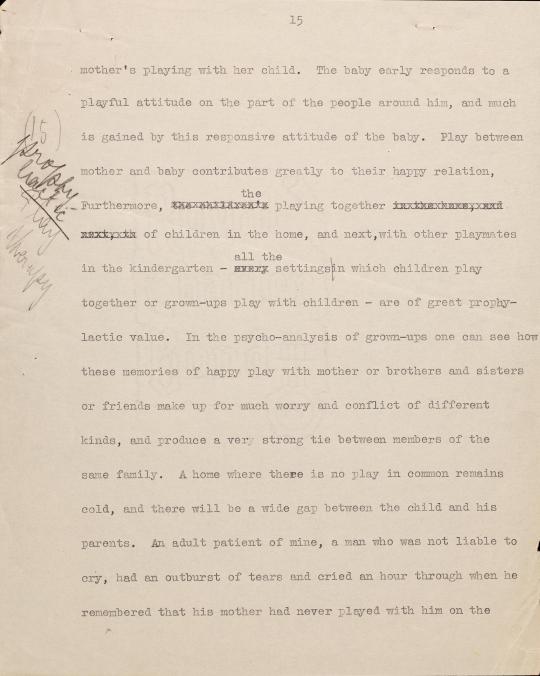
Klein notes the important role of play, as well as imagination, in liberating unconscious phantasy. Without such a liberation of phantasy within an environment that can receive and not be too alarmed by it, the personality may remain, or become, significantly constricted. Klein continues:
Play in common increases love and trust, improves human relationships, and helps the child to overcome fears. For instance, let us take the game of a child who is pretending that he is shooting lions in the jungle (represented by a few chairs), or who is harpooning whales, from a couch which represents the ship. If the mother can join in such a game (and she may be asked to do so if the relation between herself and her child is good enough) then not only does she share pleasure with him but she is felt to be a helper, a good figure, as it were, against the bad and dangerous beings of his phantasies, which are represented by lions and whales…. (File PP/KLE/C.9; Images 42/, 43/ and 44/76)
Such experiences of play with trusted others, Klein writes, are:
… of the greatest importance for future relationships to people… It is an invaluable gain for the child’s mental and intellectual development, and for his happiness, if by means of play he can liberate his unconscious phantasies and express his impulses of various kinds. (Image 46/76)
Klein continues:
Every child is in the greatest need of a really understanding love as a support against his fears derived from internal sources. The mother’s love and understanding can hardly be expressed in a more suitable way than by becoming a good playmate to her child. In doing so she no doubt achieves something of which she may very well not be at all aware, that is, that she really understands her child, by which I mean that she unconsciously feels what goes on in the child’s unconscious… Furthermore, the gratifications which the child shares with the people who play with him help him to gain trust in them, and thus become the foundation for an improved relation between the child and grown-ups in general. The grown-up person who plays with the child in a way which responds to the child’s mind… puts himself on a level with the child and does away with the great gap which exists between the[m.] (Image 48/76)
Finally, on imagination and play, Klein writes:
The connection between the child’s imagination and his play is an obvious one. One can easily observe how the child can make a plaything of any object, and that he is guided by his imagination when doing so. That the child’s imagination is more strongly at work than that of the adult has probably always been understood, and the relation between play and imagination more or less recognised. But it has been left to psycho-analysis to discover the wealth and depth of the child’s phantasy life and also the importance of these phantasies for his whole development. Psycho-analysis has found that the child’s phantasies can be developed and play an important part in his later activities and sublimations. So true is this that one can say that a too strong repression of his phantasies inhibits the development of activities and sublimations and impoverishes his whole personality. It appeared that whatever can be seen and observed of the child’s imaginative life is on the whole a very small and weak expression of what goes on in the depths of his mind. (Images 60/ and 61/76)
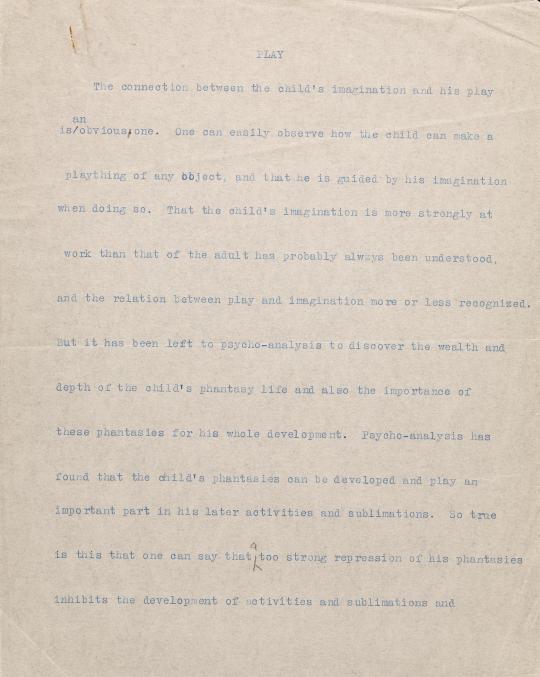
#melanie klein#psychoanalysis#child therapy#infant play#child development#early relationships#wellcome library#unconscious phantasy
8 notes
·
View notes
Text
Annabeth: I, a child, had to earn Thalia’s love, that’s how the world works! I have to earn my moms love. Love is transactional, you gotta be worthy of it first silly :)
Percy, listening to this on the train

#STOP TRAUMATIZING THIS CHILD PLEASE#this is what it’s like when you were raised in a loving home and you find out your friend wasn’t#but they don’t know they weren’t#so you’re like um hey that’s fucked up and sometimes a crime?#you tell them parents are supposed to love you as is without earning it and they don’t believe you#you can hear the therapy bill racking up#annabeth chase#Percy jackson#percy jackson and the olympians#percy jackon and the olympians#pjo#pjo series#pjo tv show#mine#adding on to my tags because some people are debating if that’s how love works#love is meant to be a mutual exchange and something that grows over time between two people as their bond grows#whereas how Annabeth says it#in my opinion at least#she had to do XY and Z to be worthy of thalias love before receiving it#like with her mother#she has to be amazing before Athena is proud of her#vs Athena being proud of her just for being her daughter#that being said I’m not hating on a traumatized child having potentially negative and toxic patterns#more pointing out the comedy of the scene from Percy’s perspective who has a good grasp on healthy vs unhealthy relationships
34K notes
·
View notes
Text
Child Therapy in Rhode Island

Many children and teens have problems that affect how they feel, act, or learn. Therapy is a type of treatment for these problems. It is a way to get help for your child.
0 notes
Text
Supporting Young Minds: The Importance of Child Therapy in Vancouver
In the bustling city of Vancouver, where diverse cultures and opportunities abound, the mental and emotional well-being of its youngest residents remains a priority. Child therapy has become an essential service, offering support and guidance to children navigating the complexities of growing up in today's world. This blog sheds light on the importance of child therapy in Vancouver, highlighting how it helps support the mental health and development of children across the city.

A Safe Space for Expression
Child therapy in Vancouver provides a safe and nurturing environment where children can express themselves freely. Whether they're dealing with academic pressures, social challenges, or family dynamics, therapy offers a confidential space for children to voice their concerns and feelings. Through various therapeutic techniques, therapists help children understand and articulate their emotions, fostering a sense of self-awareness and emotional intelligence.
Building Resilience and Coping Skills
One of the key benefits of child therapy is the development of resilience and coping skills. Vancouver's therapists work with children to equip them with strategies to manage stress, anxiety, and other emotional challenges. By learning these skills early in life, children can navigate future obstacles more effectively, leading to healthier mental well-being throughout their development.
Enhancing Family Dynamics
Child therapy often involves the family as a whole, recognizing the crucial role of family dynamics in a child's mental health. Therapists may engage parents and siblings in the therapy process, facilitating better communication and understanding within the family. This collaborative approach can lead to more harmonious family relationships and a supportive home environment for the child's growth.
Conclusion: A Foundation for Healthy Development
The provision of child therapy services in Vancouver is a testament to the city's commitment to the well-being of its children. By offering a supportive space for emotional expression, building resilience, and enhancing family dynamics, child therapy lays a strong foundation for the healthy development of young minds. As Vancouver continues to grow and evolve, the role of child therapy in supporting its youngest citizens will remain invaluable.
0 notes
Text
Mental Health in Kids And Adolescents: What Parents Need to Know

The journey from childhood to adolescence involves significant mental and emotional development that lays the foundation for future wellbeing. Parents must understand that mental health encompasses a child's ability to express emotions, adapt to changes, navigate relationships, and perceive the world around them. Common issues include anxiety, depression, ADHD, and autism spectrum disorders. Early recognition of mental health concerns and providing proper support can profoundly impact a child's life trajectory.
Be aware of signs like persistent sadness, irritability, excessive fears or worries, panic attacks, changes in school performance, social withdrawal, disrupted sleep or eating patterns, angry outbursts, frequent physical complaints without medical cause, and any self-harming behaviors. While mood swings are normal, persistent issues impacting daily functioning may indicate a deeper problem. Mental health struggles can hinder academic achievement, social skills development, and healthy family relationships. Left unaddressed, issues can potentially evolve into more severe disorders, affecting future fulfillment.
Support your child by openly communicating about mental health using age-appropriate language that encourages sharing feelings. Create a supportive home environment with consistent routines, a balanced lifestyle for physical and mental health, and reasonable limits on screen time. Be vigilant for signs that professional help may be needed from a therapist, counselor, or other mental health resources. Work collaboratively with schools to ensure your child receives accommodations. With an involved, understanding approach and professional treatment when necessary, parents can foster emotional resilience in children and adolescents.
0 notes
Text
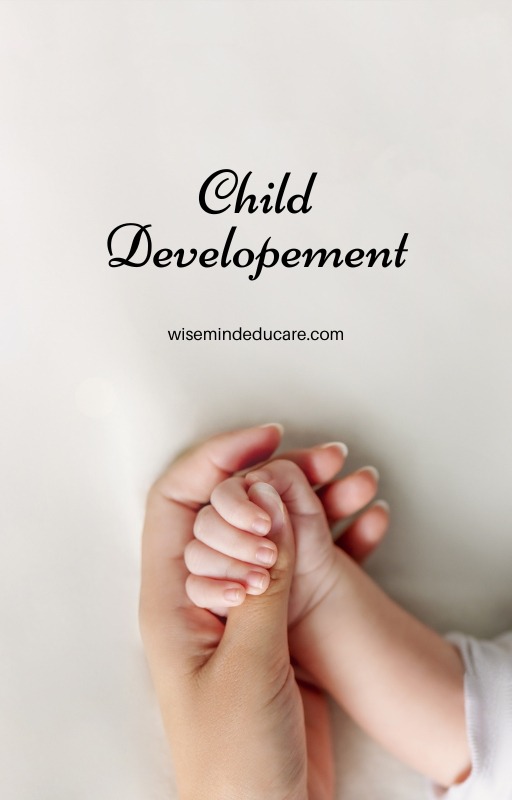
Wise Mind Educare, nestled in the heart of Kharadi, Pune, is a dedicated haven for child therapy. With a nurturing environment, our expert therapists and educators focus on fostering the holistic development of children. Our after-school programs are crafted to enhance cognitive, emotional, and social skills, creating a safe space for exploration and growth. At Wise Mind Educare, we understand the unique needs of each child, providing tailored interventions to support their journey toward resilience and confidence. Join us in nurturing a generation that thrives at Wise Mind Educare in Kharadi.
#after school program#child#child education#child therapy#drama#speech#wisemindeducare#after school#childcare#education#kharadi#pune
0 notes
Text
As children grow and develop, they experience various emotions, including anger. Anger is a normal and healthy emotion, but when it becomes a consistent and overwhelming part of a child’s life, it may indicate that intervention is needed to address underlying issues. Recognizing the signs that your child’s anger may require intervention is crucial for their mental wellness and overall well-being.
0 notes
Text

A dysregulated adult cannot regulate a dysregulated child, but a regulated adult can regulate a dysregulated child.
Start by centering yourself.
#healing my inner child#fuck you ptsd#c ptsd#trauma therapy#child therapy#post traumatic#complex ptsd#ptsd#ptsd recovery#trauma recovery#complex post traumatic stress disorder#traumatized#trauma#post traumatic stress disorder#actuallymentallyill#coregulation#regulation#calming down kids#calm yourself#calmness#calming down#regulate#regulate yourself#emotion regulation#early childhood trauma#healing#do not yell at your child#hitting doesn't work#calm yourself down before you engage with an angry kid#deep breath
1 note
·
View note
Text
Affirmations for Back-To-School Anxiety

Its that time of the year! Schools are back in session and maybe you’re noticing your child feeling some big emotions about starting back. We understand that going back to school can be overwhelming for some kids, so we want to support you with some affirmations to do with your child before the school day starts.
What are some other things you do to support your child before they start school or when they’re feeling anxious? Let us know in the comments!
0 notes
Text
0 notes
Text
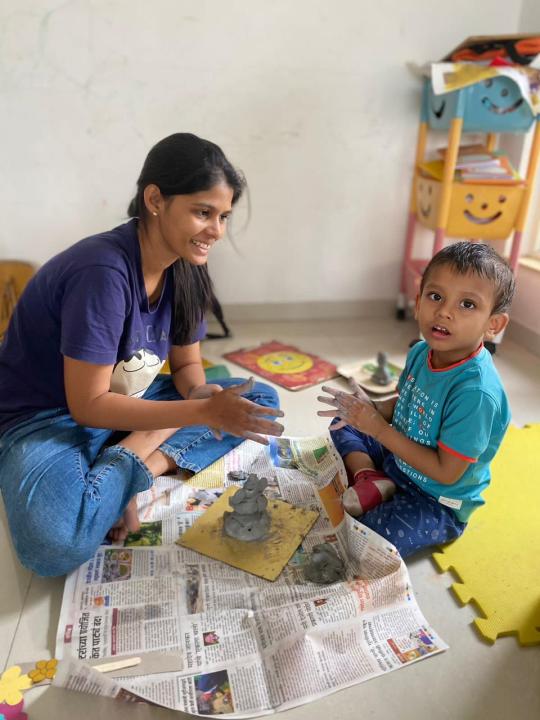
Ganapati idol making activity at Wise Mind Educare Child Development and Learning Centre, Khardi
#pune#kharadi#child therapy#child development#activity#ganesh chaturthi#lord ganesh#kids#child health#yoga therapy#after school#enjoy
0 notes
Text
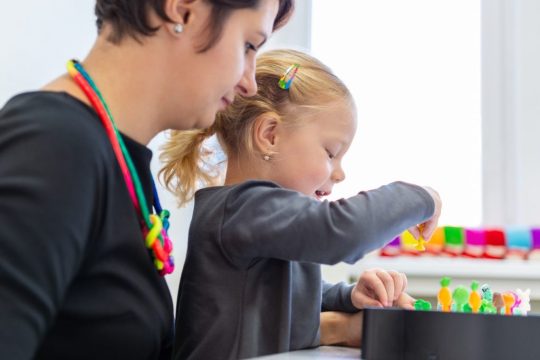
BCBA in Albuquerque
Our board-certified behavior analysts in Albuquerque aim to teach skills and implement meaningful behavioral changes using evidence-based practices. Call Camino today!
0 notes